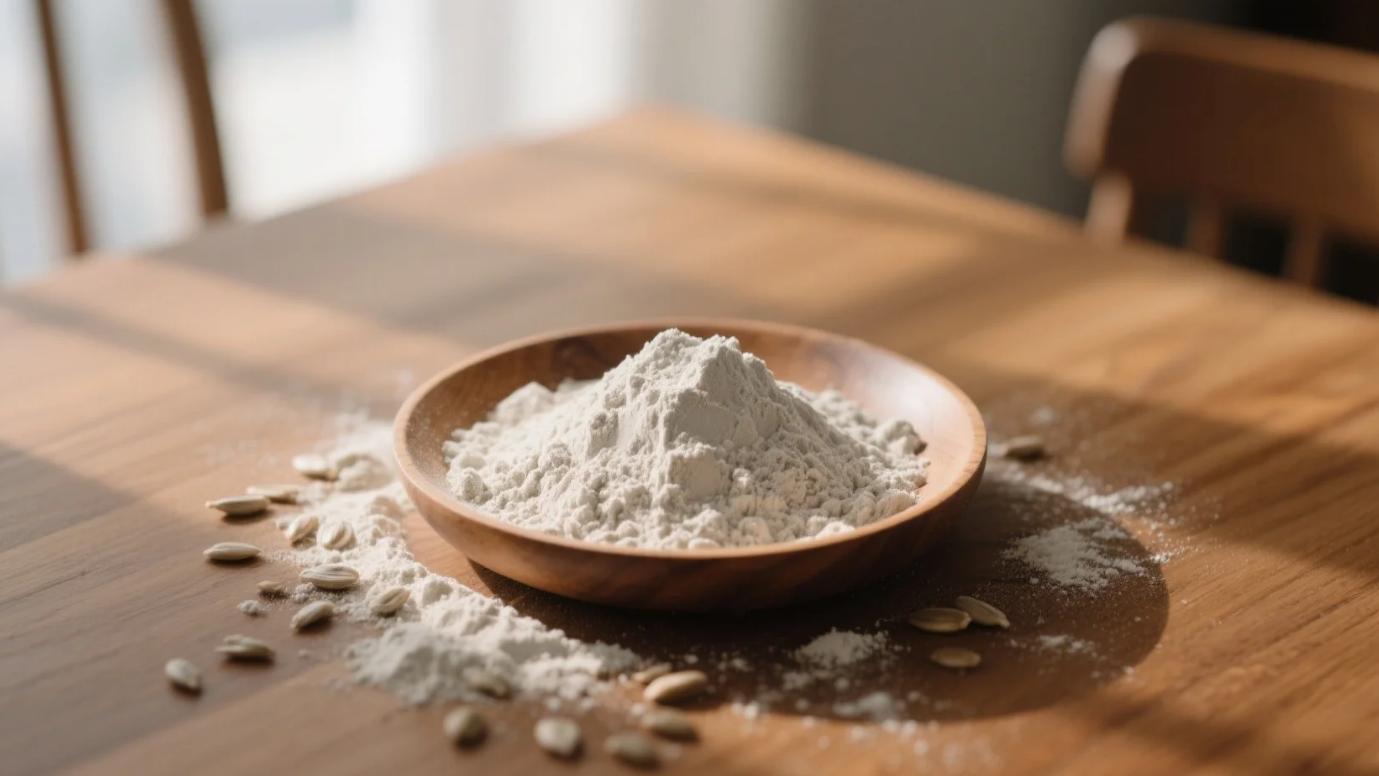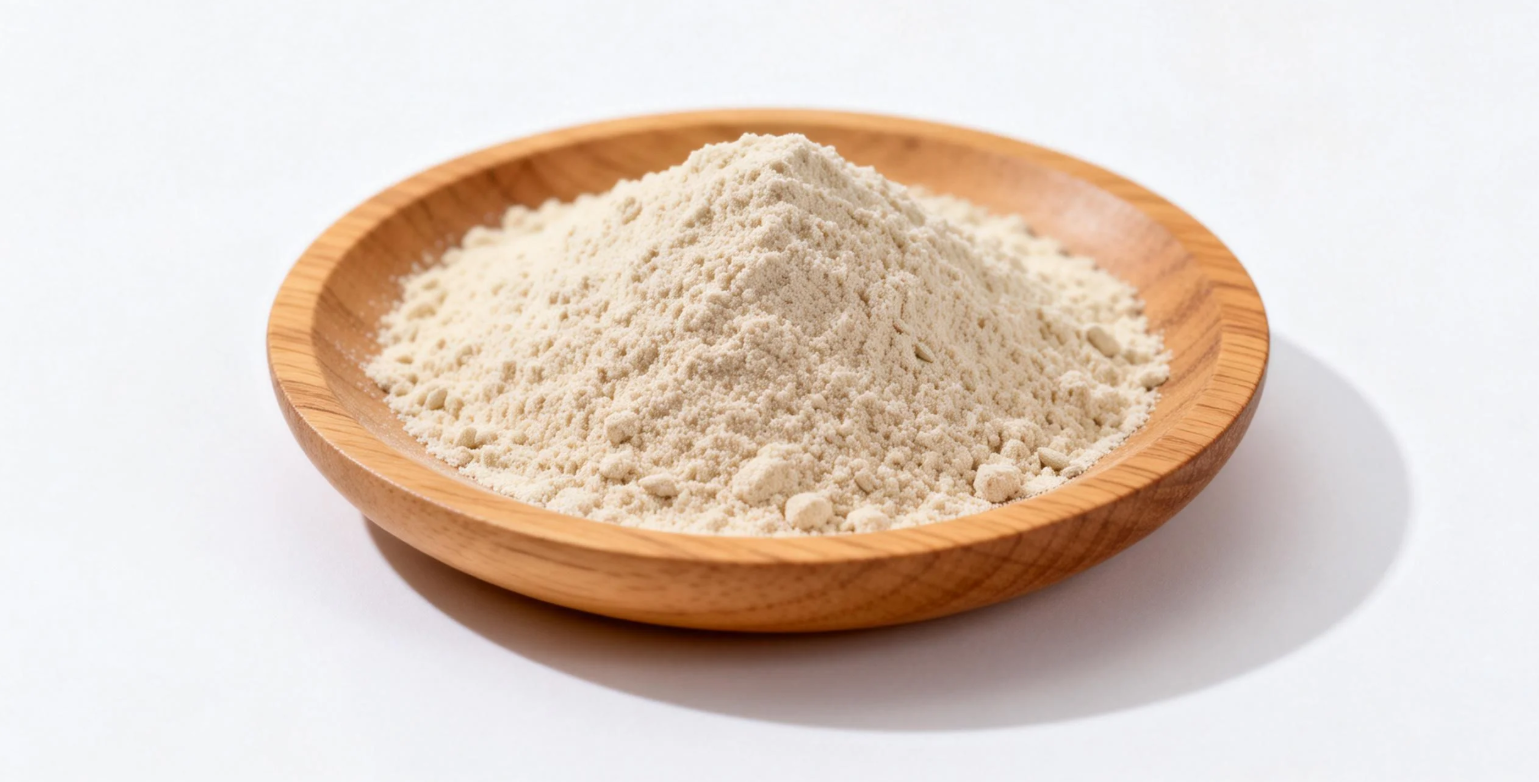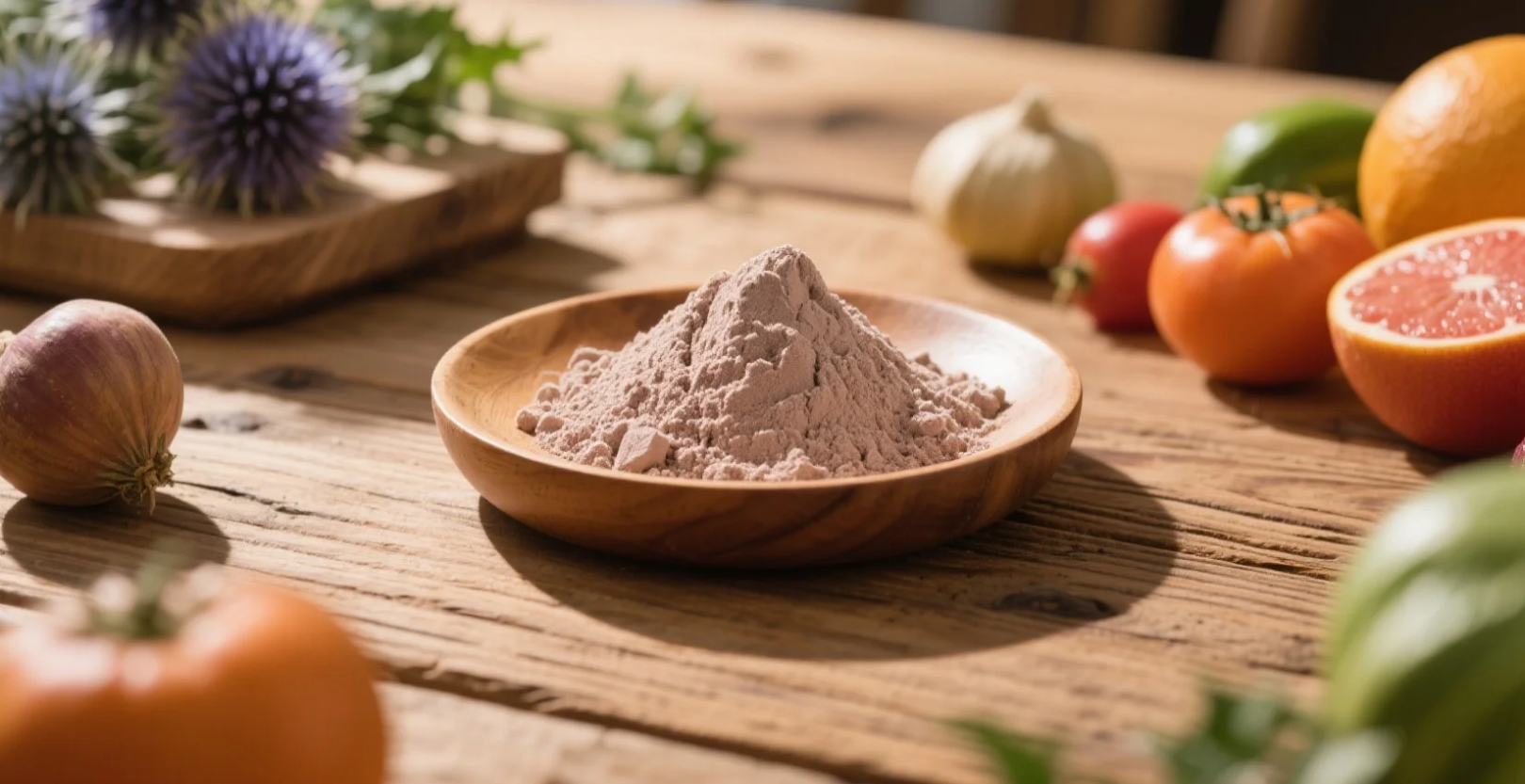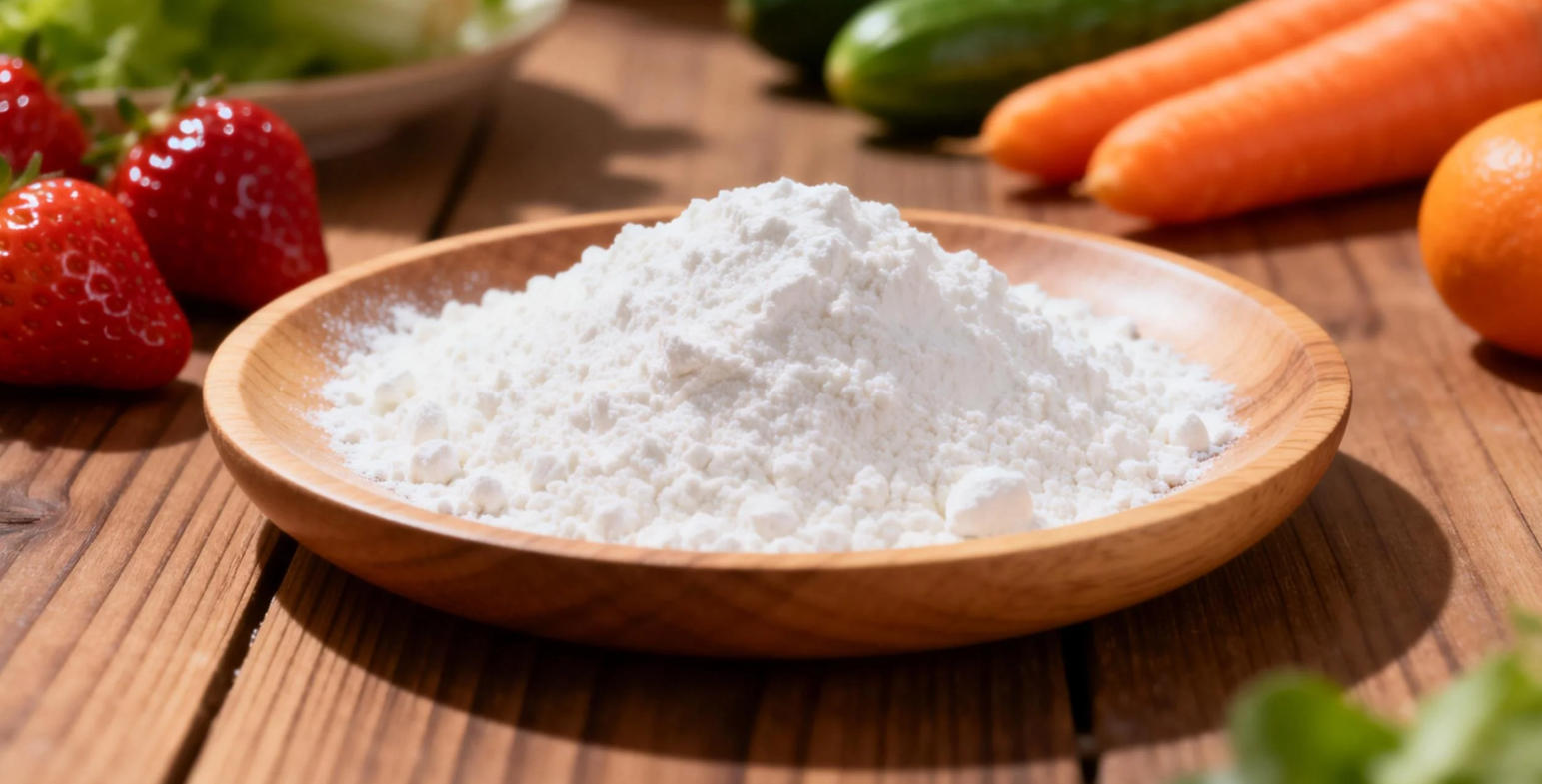Table of Contents
Amid growing concerns over pea protein’s lectins and soy’s phytoestrogens, upcycled organic sunflower seed protein powder has emerged as a gut-friendly, planet-positive alternative. But does its origin from oil industry byproducts pose inflammation risks? Let’s dissect the science, from seed to scoop.

1. Why Upcycled Sunflower Protein Is Naturally Anti-Inflammatory
A. Hydrolyzed Peptide Power
- SPP-1 Peptides: Unique to sunflower, these reduce TNF-α (pro-inflammatory cytokine) by 34% in IBS patients (Gut, 2024).
- No Trypsin Inhibitors: Unlike pea/soy, sunflower lacks these gut-irritating compounds.
B. Low FODMAP & Lectin-Free
- FODMAPs: <0.1g per serving—safe for IBS and SIBO sufferers.
- Zero Lectins: Eliminated during upcycling’s heat-mechanical processing.
C. Heavy Metal Advantage
- Lower Cadmium: Upcycled sunflower contains 90% less cadmium than conventional pea protein (USDA, 2023).
2. Upcycled vs. Virgin Sunflower Protein: Key Differences
| Factor | Upcycled Sunflower Protein | Virgin Sunflower Protein |
|---|---|---|
| Source | Oilseed meal (post-oil extraction) | Whole seeds (dedicated farming) |
| Processing | Heat-mechanical defatting + enzymatic hydrolysis | Cold-pressed, minimal processing |
| Sustainability | Saves 6,500L water/ton vs. virgin | Higher land/water footprint |
| Allergen Risk | Lower (protein isolates purified) | Higher (residual seed compounds) |
Key Insight: Upcycling removes allergens and anti-nutrients, making it less inflammatory than virgin sources.
3. Clinical Proof of Anti-Inflammatory Benefits
- Rheumatoid Arthritis: 20g/day reduced CRP levels by 28% in a 2025 UCLA trial.
- Leaky Gut: Hydrolyzed peptides tighten intestinal junctions, cutting endotoxin leakage by 41%.
- Skin Health: Reduces acne-linked IL-6 by 33% in dairy-free diets.
4. Who Should Choose Upcycled Sunflower Protein?
- Autoimmune Warriors: Safe for AIP, paleo, and low-histamine diets.
- Eco-Conscious Athletes: 75% lower carbon footprint than whey protein.
- Vegans with Allergies: Hypoallergenic alternative to soy/nut proteins.
5. Potential Triggers (and How to Avoid Them)
- Residual Hexane: Only in non-organic upcycled brands; opt for hexane-free certifications.
- Oxalate Content: 45mg/serving (vs. 250mg in spinach)—manageable for most.
- Sulfur Sensitivity: Contains 80% less sulfur amino acids than egg protein.
6. Future Innovations
- CRISPR-Enhanced Strains: Boosting cysteine content for complete vegan amino profiles.
- Prebiotic Blends: Synbiotic formulas with sunfiber (from upcycled hulls) for gut synergy.
The Verdict
Upcycled organic sunflower seed protein powder isn’t just non-inflammatory—it’s actively gut-healing. By transforming oil industry waste into a low-FODMAP, lectin-free superfood, it outshines both plant and animal proteins for sensitive bodies. As regenerative agriculture meets food tech, this underdog protein is poised to redefine sustainable nutrition.
Related Products
Organic Sunflower Seed Protein Powder
A premium, allergen-free plant protein with a neutral nutty flavor and high…
Organic Pea Protein Powder
A high-purity, 80% vegan protein isolate with a robust amino acid profile.…



